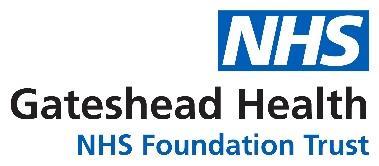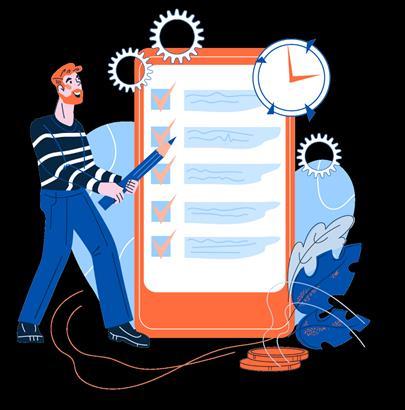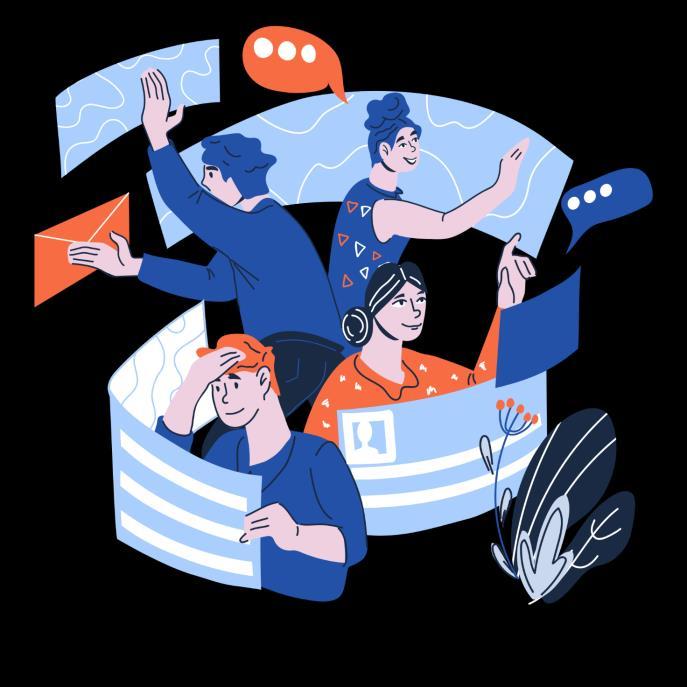How to: Plan an Away Day


Your practical guide to planning an ‘away day’ for your team

Introduction
*This guide refers to ‘away days’ but can also apply to shorter team sessions.
Welcome to your guide to planning an away-day.
Time out of the Trust and away from the day-to-day work pressures can be an effective way to; reconnect with your team, generate new ideas, create solutions or just to reflect and recognize the work you’ve all been doing.
There is no ‘standard’ approach to team away days as each team will have their own requirements due to working patterns, budgets, need etc. It is up to individual teams and team leaders to determine if an away-day is an appropriate use of time and will be beneficial to the overall team objectives.
This guide is to support managers in facilitating their time out of the Trust, whether a few hours on site or an away day at an external venue.
If you have any further questions, please get in touch with OD ghnt.gatesheadod@nhs.net

Gateshead Health NHS Foundation Trust #GatesheadHealth Page 1
In this guide: Introduction 1 Away Day?............................................................................................................2 Your SMART objective for Away Day ...................................................................4 Away Day Invitations & Joining Instructions 5 Pre-course Work 5 Facilities................................................................................................................5 Refreshments .......................................................................................................6 Who needs to be involved? 6 Checklist of Pre-Away Day Information 7 Away Day Content & Activities:.............................................................................8 Setting Ground rules for the day:..........................................................................8 Icebreakers: 9 Tips For Planning Your Agenda: 12 Helpful Resources:..............................................................................................14
Away Day?
Before planning your away day it’s important to think about its purpose and what you want to happen as a result of people attending. It’s important to know what you want to get out of it before you start planning.
It’s a good idea to start with the end in mind, what will be the results / outcome of having the away day, what do you hope to achieve, what will be the ROI and the results that you want to achieve?
Level 1: Reaction







What added value contribution will the session make to the Trust / team?

What will the business impact be, of the participants having completed their away day?
How will the behaviour of participants change as a result of attending the away day?
What will participants learn as a result of attending the away day?
How will participants react to the away day?
(Don Kilpatrick / Jack Phillips)
Gateshead Health NHS Foundation Trust #GatesheadHealth Page 2
Level 5: ROI
Level 4: Results
Level 3: Behaviour
Level 2: Learning
Think about why you’re planning the day and write down the single most important way you’re going to measure how successful it is. This will help you to refine your agenda.
Are you clear about what result you would like from the away day?

If for example, it is to improve communication within your team the agenda should enable people to understand your message.
If it’s to improve team building, the agenda should include bonds being built.
Maybe you’re celebrating so you’re expecting to see an uplift in team morale after a period of intense work.
Pick one or two objectives and make them as specific as possible.
Don't try to do too much.
And then stick to them! Don’t get distracted by too many gimmicks or ideas that won’t help you achieve what’s needed.
Gateshead Health NHS Foundation Trust #GatesheadHealth Page 3
Your SMART objective for Away Day
The table below will enable you to plan for a successful Away Day – please see the example below. By using this step-by-step plan to help guide you, you will be able to identify and plan key actions for your Away Day.
Specific Goal Measure of Success
To improve communication in the team so that all team members feel understood, able to have their say, engaged & motivated.
Increase in team staff survey results. TED tool –increase in team communication score

Is this achievable –are there any barriers?
No budget –look at booking a room at Trust HQ.
Covering shifts.
Is this relevant to your Team/Trust?
Links to people promise –everyone has a voice.
What does the timeline look like for your Away Day?
Before next BU meeting. Six weeks’ notice to staff to cover shifts.
What support or resources are needed?
Book room Team building exercise –contact OD Laptop / screen. Flipchart, paper, pens.
Gateshead Health NHS Foundation Trust #GatesheadHealth Page 4
Away Day Invitations & Joining Instructions
Think about how you will invite participants to the away-day. First impressions count and this is a great opportunity to create interest and excitement in the run up to the away day. If you usually use email to invite participants think about some ways in which you could make the email stand out.
Use colour / graphics to attract attention
Personalise the invitation
Include an interactive link with the email
Include line managers / Business Unit managers so they can brief participants and become involved
Use social media / intranet to promote the away-day
Pre-course Work
This is a good way to get participants engaged. It’s a good idea to keep any precourse work simple and relevant. You will need to ensure that it is referred to early on in the away day. You could ask participants to do some research or come to the session with some ideas / suggestions.

Facilities
You will need to ensure the room is conducive to your requirements and has all the necessary equipment for your away-day.

You will need to consider the size of room required and check availability within the Trust.

If you are booking a room externally, think about providing directions to the venue and details about parking.
Consider the atmosphere you want to create in the room and set it out accordingly. Having people sitting cabaret style (round tables) promotes a more
Gateshead Health NHS Foundation Trust #GatesheadHealth Page 5
relaxed atmosphere than boardroom or horseshoe style. If you want to make it more relaxed, consider removing tables and have the participants sitting on chairs in a circle. This will help to create a greater sense of openness as there are no barriers.
What resources will you need for your session? If you want participants to write or present ideas, then you need to make sure you have resources available:

Laptop & projector (ensure they are compatible)
Coloured Pens
Flipcharts & paper
Post-it notes
Pens & paper for table
Handouts of any exercises, important materials
Refreshments
If you are providing refreshments, consider having water and fruit available as well as sweets to promote a healthy environment.
If you are not providing refreshments or lunch you should advise delegates to either bring food with them or ensure there are places nearby where food / drinks can be purchased (depending on length of away-day). It’s advisable to include this information with any joining instructions.

Who needs to be involved?
If you want speakers to attend as part of your away day you will need to ensure they have adequate notice to attend. You also need to think about who will co-ordinate presentations and materials for the speakers. It is easier if they can be all on one device so time is not wasted by swapping equipment.
Gateshead Health NHS Foundation Trust #GatesheadHealth Page 6
Checklist of Pre-Away Day Information

The checklist below provides a summary of key information that may help participants:
Key Area: Points to consider: ✓
Away Day title theme? Consider creating an active title that explains the benefit to people attending the session.
Date and start time
Participants will want to know the date and start time. Giving a start time 15 minute before the formal start will mean that participants can get a drink and catch up
Finish time Going beyond the agreed finish time often means that participants lose focus as they start to think about their journey home. Over-estimating the finish time by about 15 minutes should allow you some flexibility and participants rarely object to an earlier finish.
Structure Provide a brief overview of the day without going into too much detail. Include some detail on what they will be expected to be involved with e.g. group discussion, action learning set, focus group, etc
Refreshments / Lunch Explain lunch arrangements and timing. Will food be provided? Do people need to bring or buy their own lunch? Are special dietary requirements catered for e.g. vegetarians, coeliac etc.
Venue
Ensure the training venue is booked well in advance of your day. Check it has all the resources you require. Provide the venue name and location including full address and post code (if external to Trust or people are travelling to the venue). Consider providing a link to Google maps and also provide a description of where to find the training room.
On arrival Tell participants where they need to report to and what they need to say so that they are signed in correctly. If external, find out if you need to provide delegate names, car registrations etc.
Parking Explain parking facilities & provide maps if necessary.
Expenses Clearly explain what will/will not be covered as part of the training. For example, will mileage and meals be paid?
Dress code Clearly state what’s expected e.g. business smart, smart casual or casual.
Delegate List Provide names, job titles and locations of attendees. Encourage car sharing for people travelling from the same location.
Accessibility Explain accessibility arrangements and encourage people to contact you if they have a specific need e.g. induction loop or an interpreter.
Organisers Contact Details Provide email address or business phone number so people can contact if they have any queries either beforehand or on the day itself.
Pre-Session Preparation Explain what pre-session preparation (if any) needs to take place.
What to bring Let participants know what they will need to bring to the course, e.g. department specific information.
Gateshead Health NHS Foundation Trust #GatesheadHealth Page 7
☐
☐
☐
☐
☐
☐
☐
☐
☐
☐
☐
☐
☐
☐
☐
Away Day Content & Activities:
Once you have agreed the purpose of your ‘away day’ you can start to think about the activities that you are going to use during your away day to ensure that everyone has a positive experience. Designing a participative session and ensuring that everyone is aware of the purpose of the session and why they are there will determine the success of the day.
Participants should clearly understand the benefits of the session from the outset, and it should be designed to ensure everyone’s learning style is considered:
Activists – variety & action
Pragmatists – action and opportunity to apply this
Theorists – concepts & models, reference materials
Reflectors – opportunity for review and reflection
Does the away-day incorporate:
Skills-based activities (doing)

Theory-based activities (knowing)

Experiential activities (being)
As mentioned earlier, it’s important to determine what you want to achieve out of the day. Ensure this has informed your planning, from venue to agenda to follow up.
Setting Ground rules for the day:
It’s a good idea to set ground rules and boundaries and at the start of your day away to help create suitable conditions within which everyone (and yourself) can work and contribute safely. If they are not set, problems may occur which could disrupt the session.

Gateshead Health NHS Foundation Trust #GatesheadHealth Page 8
Suggested Ground Rules:
Only one person speaking at a time.
Mobile phones to be switched off.

Maintain good timekeeping.
Maintain confidentiality within the group.
Starting and finishing sessions on time.
Icebreakers:
The start of the session can set the tone for the whole day / session. A good icebreaker can engage and energise the group. When selecting an icebreaker consider the following:
Who is your audience? Do they know each other? Do you know what the participants preferred learning styles are
What is the purpose of the icebreaker? To introduce people? To form groups or pairs?
How long do you want it to last? How much time have you got?
Does the topic of the icebreaker need to be related to the topic / theme of the session? E.g. if you are running a session on communication should the icebreaker encourage that within the group

My First Job
How it works:
Ask everyone in the group to write down their name, their first job, and what they learned from that job. Then go round the group and have everybody read theirs out.
This is a chance for the group to learn something new about each other without getting too uncomfortably personal. It’s also a great warm-up as it doesn’t require too much thinking straight off the bat.
Gateshead Health NHS Foundation Trust #GatesheadHealth Page 9
Variation:

If you want to add a bit of mystery to the ‘My First Job’ icebreaker, have everybody write down only their first job and what they learned from it (leaving out their name) and put their answers into a hat (or on an anonymous virtual Post-it note if you’re running a remote or hybrid meeting). Then have the rest of the group guess which first job belongs to which member of the group.
Guess Who?
This is another getting-to-know-each-other icebreaker that will facilitate natural conversation (and probably a few laughs). All you need is pen and paper for each workshop participant (or digital sticky notes and a virtual whiteboard, if you’re holding the meeting remotely).
How it works:
Ask each member of the group to write down a random fact about themselves— something that others in the group are unlikely to know already. Collect all the random facts in a hat (or on a virtual whiteboard) and read each one aloud. The group then has to decide who they think the fact relates to. Once all votes are in, ask the ‘owner’ of the fact to come forward and elaborate in more detail if they feel comfortable doing so.
This is a great team-building icebreaker as it encourages people to reveal something new about themselves. It can spark conversations, bring people closer together, and foster empathy within a group.
Pointless Questions
Pointless Questions is named that because the questions (and their answers) bear no relation to the workshop topic. But this icebreaker itself is not pointless! Far from it. By asking fun, non-work-related questions, you’ll ease the group into natural conversation and prime them for creative thinking.
How it works:
Prepare a few fun questions ahead of the workshop, then go round the room and have everybody take turns answering the questions. It’s as simple as that—you don’t even need to write anything down!
Tips for coming up with icebreaker questions:
Keep your icebreaker questions light-hearted and inclusive. Make sure they’re questions that everybody can answer—steer clear of topics that are too specific,
Gateshead Health NHS Foundation Trust #GatesheadHealth Page 10
or which might not be relevant to everybody, such as certain TV shows or music genres. Here are some ideas to get you started:
If you could invite a celebrity over for dinner, who would it be and why?
What is your most prized possession and why?
You can have an unlimited supply of one thing for the rest of your life. What do you choose?
Four Quadrants
Our final icebreaker is the Four Quadrants exercise, and it’s especially useful because it can be adapted to a range of different contexts and needs. As such, the Four Quadrants will require a little more thought and planning on the workshop facilitator’s part but it’s well worth it!
How it works:
Give each participant a pen and paper and have them draw a 2x2 grid (alternatively, you can provide ready-made grids). You’ll ask four questions, and each participant will draw their answer, using one quadrant per question. At the end, participants will present and discuss what they’ve drawn.
You can use the Four Quadrants as a just-for-fun icebreaker, asking random questions, or use it as an opportunity to introduce the topic of the workshop. For example, you could focus the questions around the current challenges that people are facing at work and what they’d like to achieve from the workshop.
However you choose to frame it, the Four Quadrants icebreaker is great for getting a bit creative and approaching potentially serious topics in a more lighthearted way.

Gateshead Health NHS Foundation Trust #GatesheadHealth Page 11
Tips For Planning Your Agenda:
An away day has the potential to build a stronger team and can generate new and relevant ideas to take back and apply to the day job.
The day should be an opportunity to generate conversations – to think and talk about work whilst not actually in the pressures of work. It allows colleagues to spend time together, encouraging colleagues to work together on creating answers to big questions, solving thorny problems, ultimately having the potential to be transformative.

TOP TIPS
1. Begin with motivation.
We all need to feel motivated to pay attention. Why should they stay interested in the topic? What’s in it for them? Be clear about the purpose of each session and try to appeal more generally to the things that keep learners alert for example, by grounding theoretical concepts in real-life scenarios and drawing on experience from the group
2. Change the medium.
Educator and psychologist Annie Murphy Paul says it’s a good rule of thumb to “shake things up” every 15 minutes or so, whether it’s to crack a joke, tell a story, show a picture, or explain your topic using a different medium. “Human beings quickly become habituated to the status quo,” she says. “When something in our environment shifts, however, we start paying attention again.” Also ensure that the day involves activities that consider everyone’s learning style.
3. Capture ideas in a narrative.
Researchers who study human cognition say that stories are ‘psychologically privileged,’ that is we understand them better, remember them more accurately, and we find them more engaging to listen to in the first place. When planning any presentation, think about how to capture ideas in a narrative.
4. Mix things up.
If you want people to think differently, then you need to offer something new. This could be changing the way you approach the ‘away day’, reframing how individuals work together, introducing a new model to develop a strategy, or a new piece of research into your industry. If you always do what you’ve always done, you’ll always get what you’ve always got! Unless you mix it up, you’ll just be covering the same ground as the last team meeting (probably with the same results)
Gateshead Health NHS Foundation Trust #GatesheadHealth Page 12
5. Allow opportunity for conversations.
Don’t overfill the agenda. A huge part of any away day is the opportunity to mix and talk in a more relaxed environment. Decent breaks are essential to enable conversations to happen and connections to be made. If teams aren’t together all of the time it could be the first opportunity that people have had to connect for a while and this can be really valuable.
6 Be clear about what happens next.
Don’t let the ‘away day’ be a one-off event. All too often people enjoy the experience but there’s no follow up and this can be a missed opportunity. If nothing happens following an ‘away day’ attendees may feel that their time and contributions were a waste and may be less inclined to attend or participate at future events
It's advisable to build time in at the end of the day to identify the key takeaways and discuss next steps. These should be recorded and shared amongst the team back in the workplace
Evaluating Your Away Day:

It’s a good idea to try and capture feedback on the away day, either at the end of the day or as soon as practicably possible after the event. You can collect virtually using Microsoft Forms. It might be useful to include questions such as:
1. How satisfied were you with the away day? Ask participants to rate the date, location, topic, mixers, sessions, speakers and catering of the away day. Evaluate the event’s overall success with this question, before diving into the specifics.
2. In your opinion, did the away day meet its objectives? An away day without clear objectives wastes people’s time & contribution. Ask participants to rate if the away day met its objectives such as, for example, agreeing new ways of working.
3. How well was the away day structured? Did the content have something to suit everyone’s preferred way of learning
4. Was there enough time for discussion? No one can get excited by endless PowerPoint presentations and listening to someone talk at them for hours Away days require a balance of listening, learning and action.
5. Which topics would you like to see covered at future away-days? Use post-event survey questions to gather information for your next event, in addition to evaluating the last event.
Gateshead Health NHS Foundation Trust #GatesheadHealth Page 13
Helpful Resources:
Staff Zone
https://staffzone.ghnt.nhs.uk/

Intranet with resources guides and information about the Trust.
Behaviour Framework
Behaviour Framework
The Behaviour Framework sets out behaviours based on our ICORE values. It describes behaviours, we’d love to see, expect to see and what we wouldn’t expect to see from ourselves and colleagues.
Gateshead Health Corporate Strategy 2022 / 2023
Gateshead Health Corporate Strategy 2022 / 2023
An overview of our corporate strategic aims for 2022 / 2023
Reward & Recognition
https://staffzone.ghnt.nhs.uk/ddi/departments/reward-and-recognition/index.php
In this section you will find information on the awards programmes like QE Gateshead Star Awards and You're a Star. These awards are your chance to say "thank you" and "well done" to those who've gone over and above what would be expected of them. So if you know of someone that has gone the extra mile to ensure patients receive the best possible care, whose collaboration has wowed you, who've innovated, supported each other, communicated superbly or otherwise, take 5-10 minutes to give them the recognition they deserve by nominating them for a Star Award!
North East and Yorkshire Leadership Academy (NEYLA)
https://www.nelacademy.nhs.uk/events
We work in partnership with the North East and Yorkshire Leadership Academy to offer our staff development sessions in a variety of different subjects.
All events are tied into the 360° Healthcare Model for Continuous Professional Development and enhance your leadership skills.
Organisational Development (OD)
Page 14
Gateshead Health NHS Foundation Trust #GatesheadHealth
https://staffzone.ghnt.nhs.uk/ddi/departments/organisational-development/index.php

OD Away Day Contracting Form
OD Contracting - Away Days.docx
OD can assist you with designing content for your away day and can participate by helping to facilitate sessions if required.
OD would only arrange away days for teams that were involved in contracted OD work.
Learning and Development (L&D)
https://staffzone.ghnt.nhs.uk/ddi/departments/learning-and-development/index.php
L&D can assist with bite size training sessions that could be used as part of away days. They may also be able to provide bespoke learning resources.
Team Engagement Development (TED)Tool
https://www.tedtool.co.uk
TED is an evidence-based diagnostic online questionnaire, structured around the key features of highly engaged and high performing teams
TED also contains a team development toolkit to help teams develop and maintain high performance. There are resources linked to the areas measured by the diagnostic to provide specific guidance and development tools.
TED aims to improve individual engagement, team engagement and team working, and both the approach and diagnostic are under pinned by a wealth of research:
Evidence shows that improving staff engagement leads to improved staff, patient and organisational outcomes. There is an evidence-based measure of individual engagement within TED.
Evidence also shows that improving team working leads to improved team engagement and positively impacts on staff, patient, and organisational outcomes. There is an evidence-based measure of real team working and team engagement within the diagnostic.
All other questions within TED are informed by research into the conditions that create team and individual engagement.
TED action plans could be used as part of the away day along with some of the resources from the team development toolkit
NB The Team Leader must have attended TED team leader training and a TED team survey must be completed by the team before the resources and action plan can be accessed
Gateshead Health NHS Foundation Trust #GatesheadHealth Page 15


















